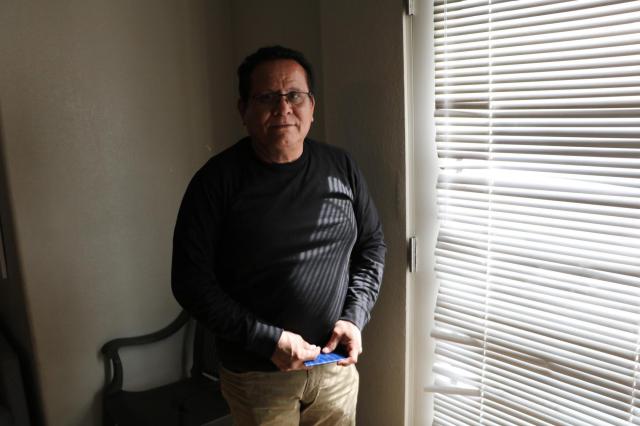Budget Battle: House Greenlights Senate Plan, Paving Way for Sweeping Healthcare Overhaul
Health
2025-04-10 21:06:11Content

In a contentious legislative showdown, Congress has taken significant steps toward implementing controversial budget cuts that could dramatically impact healthcare and essential social programs. The Senate initiated the process last week by passing a budget blueprint, which was quickly followed by a razor-thin House vote advancing the proposed reductions.
The House narrowly approved the budget measure with a vote of 216-214, revealing deep political divisions. In a surprising twist, two Republican lawmakers, Thomas Massie from Kentucky and Victoria Spartz from Indiana, broke ranks with their party and sided with Democrats in opposing the budget proposal.
This pivotal vote signals potential major changes to federal spending and could have far-reaching consequences for millions of Americans who rely on critical government services. The slim margin of victory underscores the intense political debate surrounding fiscal policy and social program funding.
As the budget measure moves forward, stakeholders across the political spectrum are closely watching its potential implications for healthcare, social safety nets, and overall government spending.
Congressional Budget Battle: A Razor-Thin Margin Threatens Healthcare and Social Programs
In the high-stakes arena of federal budgeting, the United States Congress finds itself at a critical crossroads, where partisan tensions and fiscal policy converge to potentially reshape the nation's social safety net. The recent legislative maneuvers in both the Senate and House of Representatives have exposed deep ideological divisions that could have far-reaching consequences for millions of Americans.Navigating the Fiscal Tightrope: When Budget Cuts Become Political Battlegrounds
The Senate's Strategic Budget Blueprint
The Senate's recent passage of a budget blueprint represents more than a mere procedural exercise; it signals a potentially transformative approach to national fiscal policy. By laying the groundwork for significant cuts to healthcare and critical social programs, lawmakers are essentially redefining the government's role in supporting vulnerable populations. The proposed budget cuts are not simply numerical adjustments but represent a profound philosophical statement about resource allocation and societal priorities. The intricate negotiations behind these budget proposals reveal a complex political landscape where every vote carries immense weight. Senators must balance fiscal responsibility with the humanitarian imperative of maintaining essential services, a challenge that tests the very limits of political compromise.House Vote: A Narrow Margin of Consequence
The subsequent House vote dramatically underscored the fragility of current political consensus. Passing with a mere two-vote margin of 216-214, the budget measure exposed the razor-thin line between competing political ideologies. The unexpected defection of Republican representatives Thomas Massie from Kentucky and Victoria Spartz from Indiana, who joined Democrats in opposing the measure, highlights the nuanced and unpredictable nature of contemporary legislative dynamics. This vote is more than a statistical anomaly; it represents a microcosm of the broader political polarization affecting American governance. The two-vote difference symbolizes how individual political courage and principled dissent can potentially alter national policy trajectories.Implications for Healthcare and Social Programs
The proposed budget cuts strike at the heart of critical social infrastructure. Healthcare systems, already strained by ongoing challenges, face potential destabilization. The cuts threaten to reduce access to medical services, potentially impacting millions of vulnerable Americans who rely on existing healthcare frameworks. Beyond immediate healthcare concerns, the budget proposal suggests a broader recalibration of social support mechanisms. Programs designed to provide safety nets for low-income families, elderly citizens, and individuals with disabilities could face significant restructuring or reduction.Political Dynamics and Future Projections
The current budget battle illuminates deeper systemic challenges within American political institutions. The increasingly narrow margins of legislative victories reflect a deeply divided political landscape where consensus becomes increasingly elusive. Each vote represents not just a numerical tally but a complex negotiation of competing societal visions. Experts suggest that these budget discussions are likely to intensify, with potential long-term implications for national policy. The ability to bridge ideological divides and craft nuanced, comprehensive fiscal strategies will be crucial in maintaining governmental effectiveness and social stability.Broader Context of Fiscal Policy
This budget confrontation cannot be viewed in isolation. It is part of a broader narrative of economic recalibration, where traditional approaches to government spending are being fundamentally challenged. The delicate balance between fiscal responsibility and maintaining robust social support systems remains a critical point of national debate. The ongoing legislative process demonstrates the dynamic and often unpredictable nature of American democratic governance, where individual voices and principled stands can potentially reshape national trajectories.RELATED NEWS
Health

Ditching Traditional Health Coverage: The Radical Alternative Americans Are Choosing
2025-03-20 11:00:00
Health

Anxiety and Uncertainty: How Immigration Fears Shatter Resort Workers' Mental Well-being
2025-04-19 13:20:39






